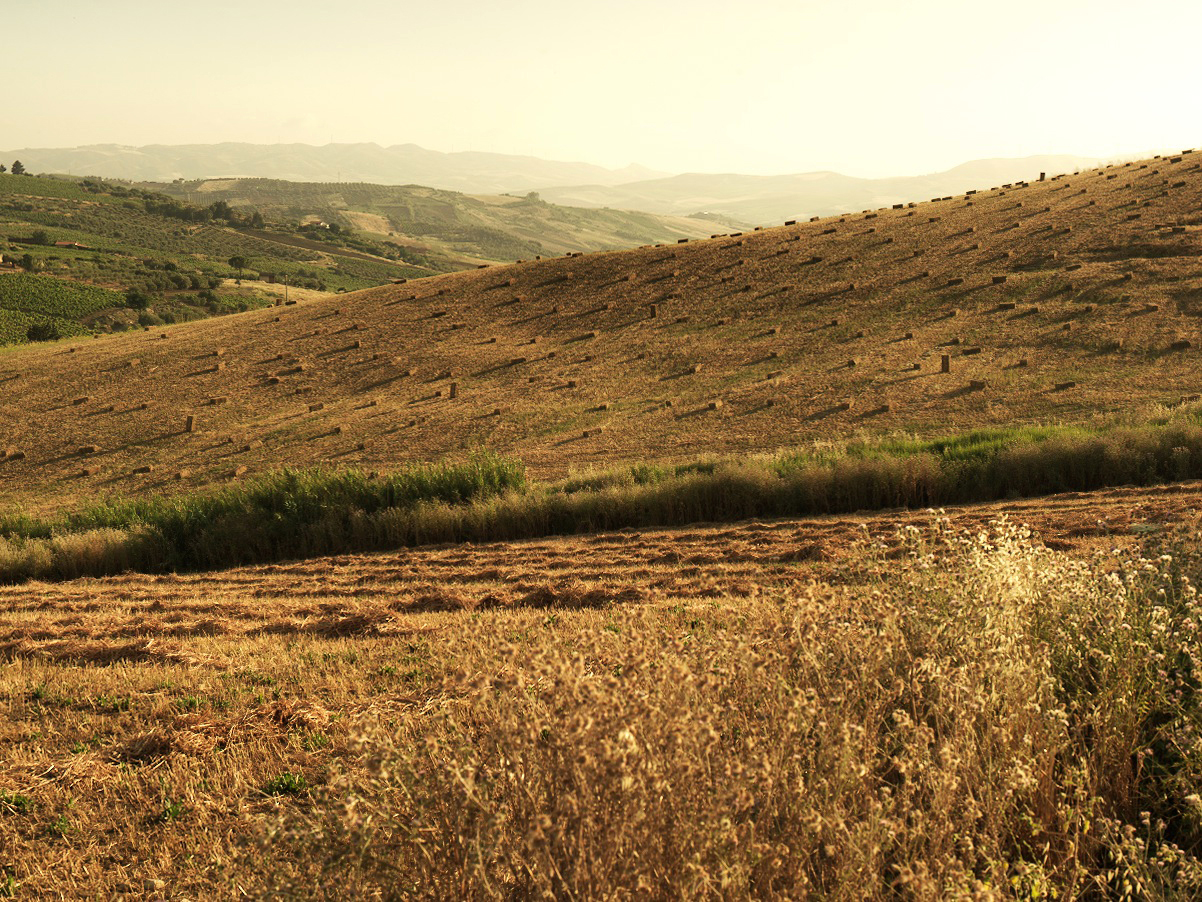About Us
Our cheeses are made from raw milk using traditional techniques that have been handed down from generation to generation, without the use of industrial enzymes. We raise native animal breeds – some of which are at risk of extinction – and graze them free-range for much of the year on pastures in uncontaminated areas of the island. A group of forty small-scale producers, we are the heirs – and guardians – of a dairy tradition established in Sicily for millennia. To help us to conserve and pass on this extraordinary heritage of flavor, culture and biodiversity, you can discover our work, visit our farms, plan a holiday at one of our agritourismi (farm stays) and, above all, taste and buy our cheeses! Within this site, you will also find the details of the cheesemongers, affineurs and shops in Sicily, and across Italy, that regularly stock a range of our products. You will also find the restaurants and osterias that use our cheeses in their cooking and offer them on their cheese carts. See you soon, and… happy reading!
Our Philosophy
We preserve and pass on TRADITIONAL KNOWLEDGE, the product of the creativity, ingenuity and extraordinary craftsmanship of the generations that have gone before us and have created thousands of types of cheese over the centuries. With the abandonment of agriculture and breeding, and the disappearance of skilled artisan dairy producers, we risk losing an unparalleled gastronomic heritage.
We use RAW MILK because pasteurization not only destroys harmful bacteria; it also destroys the useful bacteria that allow milk to take on the aromas of pastures and grasses, contributing to a cheese’s unique identity. Cheeses made from pasteurized milk are anonymous, standardized products that lack a real link to a region and can be replicated anywhere.
Raw-milk cheeses are tastier, more complex and more interesting.
We raise our animals on PASTURES: cheeses are also the product of the region (of its climate, vegetation, morphology etc.).
The best milk comes from grazing areas where wild grasses grow, there is a rich diversity of plant life and the animals are free to graze on what they feel is best suited to their well being. The odoriferous substances found in grasses are fat-soluble and are transmitted through the milk fat, and then to the cheese.
The use of wild grasses to feed livestock (from pastures, alpine meadows, local hay…) is an ancient practice that must be preserved.
We are the custodians of INDIGENOUS LOCAL BREEDS: For millennia, we have selected breeds for milk production and cheesemaking, choosing and raising the hardiest animals best suited to local grazing lands. Today many of these breeds are disappearing (Cinisara and Modicana cattle, Girgentanta goat, etc.) due to competition from “milk machines”, dairy breeds chosen for their high performance in providing large volumes of milk. However, these breeds require high-protein feed and large amounts of water as they are not suitable for grazing in the open and cannot feed on the island’s natural pastures, which are often arid. Imported feeds made from soy and corn, nearly always GMO, produce a low-quality milk which is very similar to that produced in any other intensive farm, in Italy or abroad, and is not suitable for traditional cheesemaking – which relies on the unique characteristics of the milk.
Buying cheeses made from the milk of indigenous breeds raised locally is a great way to support our biodiversity custodians.
What is LACTIMED?
From November 2012 to May 2015, the Euro-Mediterranean network ANIMA and its 11 partners undertook around 100 research, training and promotional initiatives linked to dairy production in Alexandria (Egypt), Bekaa (Lebanon), Bizerte (Tunisia), Sicily (Italy) and Thessaly (Greece).
With support from Slow Food, Aster and the Italian Chamber of Commerce for France in Marseille (CCIFM), a project has been launched in Sicily to promote the island’s traditional dairy products. Following an initial phase of research and analysis of local dairy production by professor Luri Peri, researcher from University of Catania, producers, retailers, agers, chefs, bakers and institutions were involved in meetings, in Sicily and in partner countries, aimed at developing the necessary promotional initiatives and training. Organizations providing support to the industry and local producers have complete training courses on subjects including sustainable production techniques, innovation and improved marketing strategies. Eight producers participated in an innovation competition for dairy production and the two winners, selected by an international panel, obtained start-up funding for their project. A series of fairs, events and markets (Week of Traditional Cheeses in Sicily, from May 24 to June 1, 2014) made it possible to bring Sicilian dairy products to the attention of the media, consumers and commercial and tourism operators on the two shores of the Mediterranean. Slow Food also organized exchanges between Sicilian producers and cheesemakers from across Italy and internationally, and created the website www.sicilianroots.com to tell their story.


